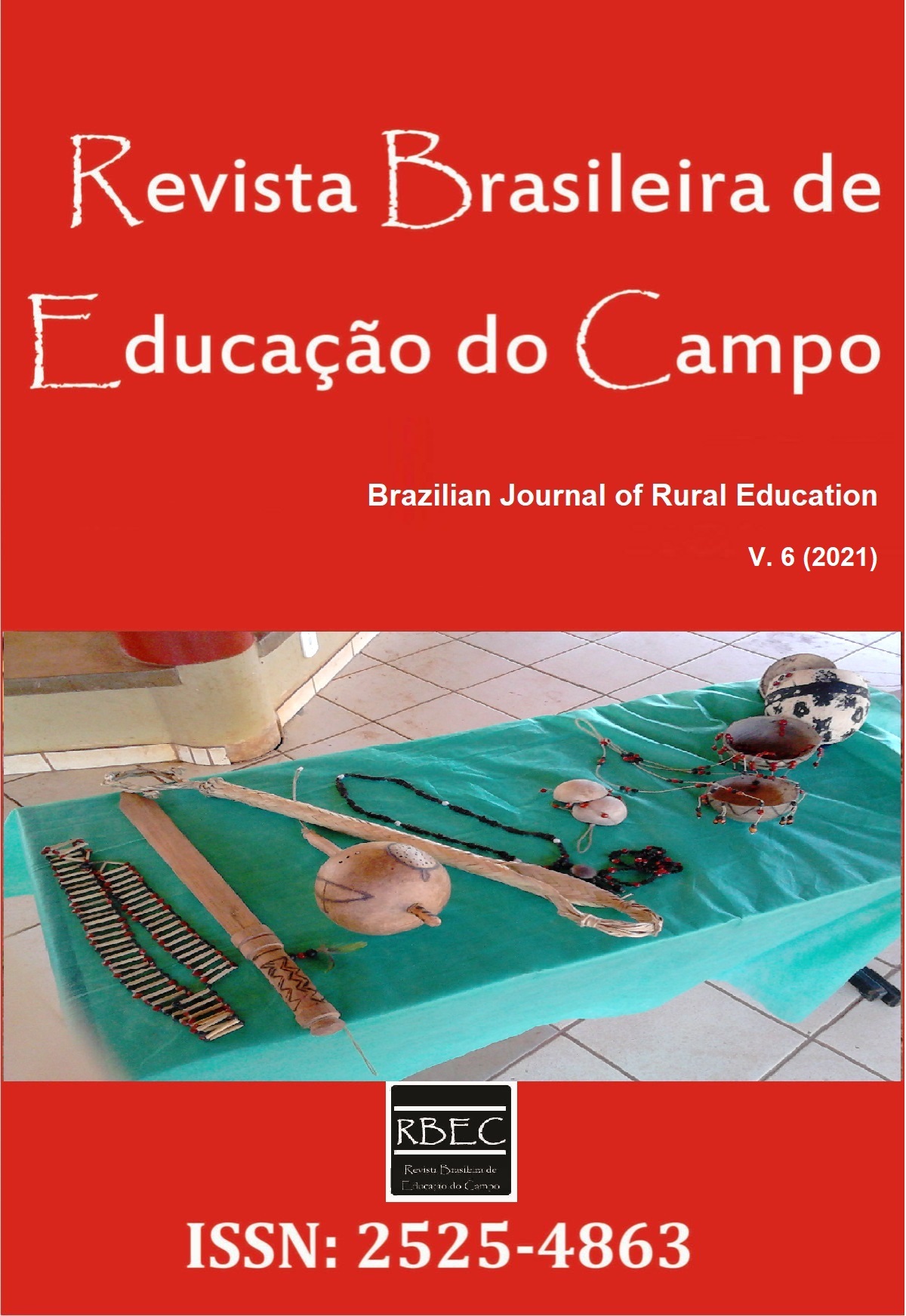Review: Carvalho, L. F. O., & Ferreira, M. J. L. (2020). Educational practices in rural schools and other educational spaces in rural areas. Salvador: JM Gráfica e Editora Ltda.
DOI:
https://doi.org/10.20873/uft.rbec.e10774Abstract
ABSTRACT. The materiality of educational practices in the field is supported by the collective interest, which tends to represent the peasant subjects. The knowledge acquired in school and non-school environments in the context of rural education contributes to/to the development of subjects from the perspective of human values, returning to the consciousness of struggle, resistance and recognition of collective partner rights, which covers the population of the countryside and is established in line with the needs of the environment, mobilizing educational practices value in different territories of the countryside. Rural education aims at the appropriation of knowledge, historically produced by humanity and which represents a strengthening basis of the organizational processors of social classes.
Downloads
Literaturhinweise
Antunes-Rocha, M. I., Martins, M. F. A., & Martins, A. A. (Orgs.). (2012). Territórios Educativos na Educação do Campo: escola, comunidade e movimentos sociais. 2. ed. Belo Horizonte: Editora Gutenberg.
Carvalho, L. F. O., & Ferreira, M. J. L. (2020). Espaços educativos nas escolas do campo e em outros espaços educativos dos territórios rurais. Salvador: JM Gráfica e Editora Ltda.
Molina, M. C. (2009). Cultivando princípios, conceitos e práticas. Presença Pedagógica, 15(88), 30-36.
Veröffentlicht
Zitationsvorschlag
Ausgabe
Rubrik
Lizenz
Creative Commons Attribution License
Creative Commons Attribution License
Proposal for Copyright Notice Creative Commons
1. Policy Proposal to Open Access Journals
Authors who publish with this journal agree to the following terms:
A. Authors retain copyright and grant the journal right of first publication with the work simultaneously licensed under the Creative Commons Attribution License that allows sharing the work with recognition of its initial publication in this journal.
B. Authors are able to take on additional contracts separately, non-exclusive distribution of the version of the paper published in this journal (ex .: publish in institutional repository or as a book), with an acknowledgment of its initial publication in this journal.
C. Authors are permitted and encouraged to post their work online (eg .: in institutional repositories or on their website) at any point before or during the editorial process, as it can lead to productive exchanges, as well as increase the impact and the citation of published work (See the Effect of Open Access).














